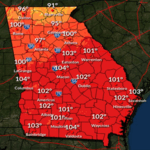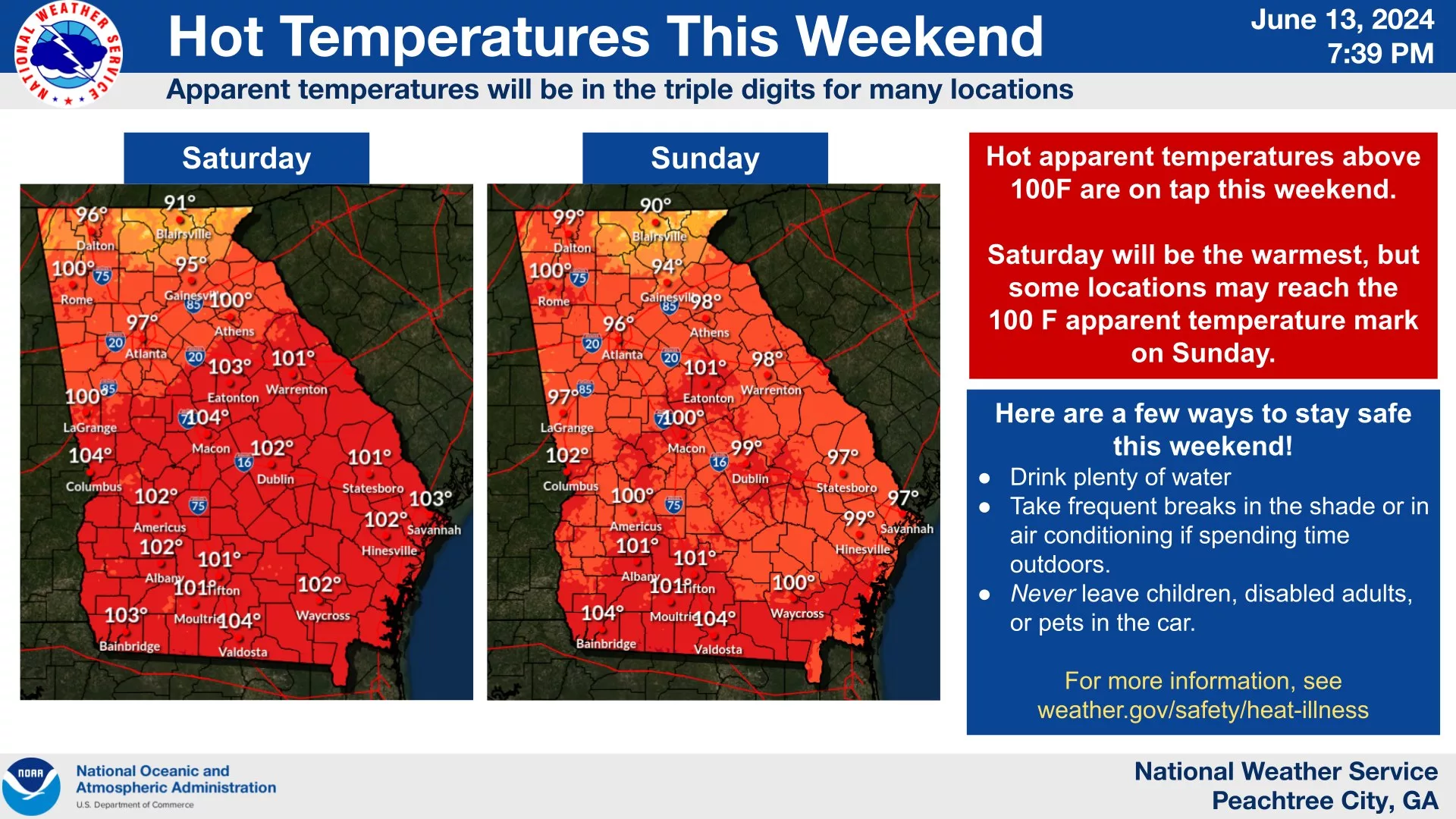
The National Weather Service (NWS) is advising local citizens to practice “heat safety” as potential triple-digit temperatures approach this weekend.
Tomorrow, on Saturday, is predicted to be the hottest day, but Sunday could also see temps eclipse 100 degrees.
The NWS recently debuted their newest measure for calculating the risk of extreme heat – NWS HeatRisk. A decade-long development by a group of meteorologist and scientists now ranks the heat risk into categories o through 4.
NWS HeatRisk is calling for portions of central Georgia to experience the highest level, referred to as “Extreme,” over the next two days. This ranking of heat is described as rare and long-standing with little overnight relief, affecting anyone without effective cooling and/or adequate hydration, and impacting most health systems, industries, and infrastructures.
Heat is one of the leading weather-related killers in the United States, resulting in over 1,000 fatalities per year. Those at the most risk of extreme heat include: young children and infants, as their bodies are less able to adapt to heat; older adults, particularly those with preexisting diseases or who take certain medications; and pregnant women, as prolonged extreme heat events have been associated with adverse birth outcomes.
Remember, it is never safe to leave a child, disabled person, or pet unattended in a locked car – even in the winter. Last year, a reported 29 children passed away as the result of a hot car.
Over half of these deaths are from children being unknowingly forgotten in the vehicle, but almost 25 percent are from children entering a parked vehicle alone. Parents are advised to always lock their cars, as a child can pass away in only 10 minutes in the most fatal conditions.
A heat wave is a period of abnormally hot weather that generally lasts more than two days – with or without high humidity – impacting infrastructure, electricity, water, and crops.
The National Weather Service is advising all individuals to practice heat safety by staying hydrated and in the shade when working; limiting strenuous outdoor activity; and checking in on others, especially older adults and those without adequate air conditioning.
It is also wise to protect oneself from excessive ultraviolet (UV) radiation by wearing sunscreen (SPF 30 or higher) to prevent premature aging, sunburn, and skin cancer. Apply sunblock 15 minutes before going outdoors and generously reapply every two hours and after swimming, sweating, or toweling off.
The sun’s rays are strongest between the hours of 10:00 a.m. and 4:00 p.m. Water and sand reflect the damaging rays, increasing the chance of a sunburn.
In situations of prolonged sun exposure, the NWS advises individuals to wear long-sleeved breathable shirts and pants, a wide-brimmed hat, and UV-blocking sunglasses.
While human skin needs sunlight to manufacture vitamin D, which is important for bone health, overexposure can be detrimental and kill skin cells. Vitamin D can be also be obtained through the correct food and supplements.
With the summer season kick-starting next week and with dangerous temperatures already here – make sure to stay cool… and stay listening to WACO 100!




